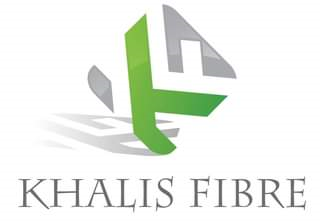Polyethylene terephthalate can be recycled from both post-industrial and post-consumer input materials. But, just to give an example, five soda bottles yield enough fiber for one extra-large T-shirt.
Recycled polyester production requires 59 percent less energy compared to virgin polyester and reduces carbon emissions by 32 percent in comparison to regular polyester.
Khalis Fiber plays a pivotal role in promoting circular economy practices within the textile and fiber industry. By recycling PET bottles into high-quality fiber, Khalis Fiber contributes to closing the loop and reducing waste generation.
In addition, recycled polyester contributes to reduction in extraction of crude oil and natural gas from the Earth to make more plastic. Using recycled polyester lessens our dependence on petroleum as a source of raw materials. It curbs discards, thereby prolonging landfill life and reducing toxic emissions from incinerators.

Khalis Fiber’s commitment to sustainability extends far beyond the realms of profitability, exemplifying its dedication to creating a positive impact on the environment.
Sustainability is an ongoing journey, and Khalis Fiber recognizes the importance of continuous improvement and added 760 KW solar in 2020-21, and planning to add another 1MW in 2024. We actively seek ways to enhance our processes, adopt greener technologies, and minimize waste generation.
